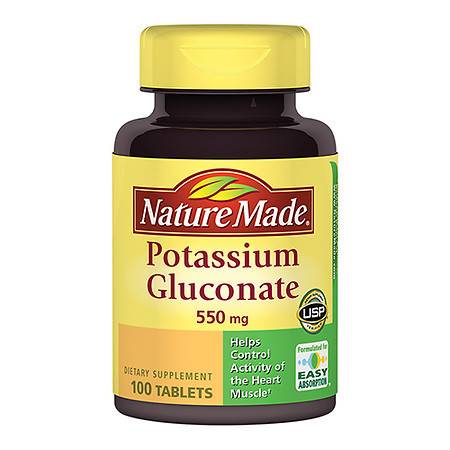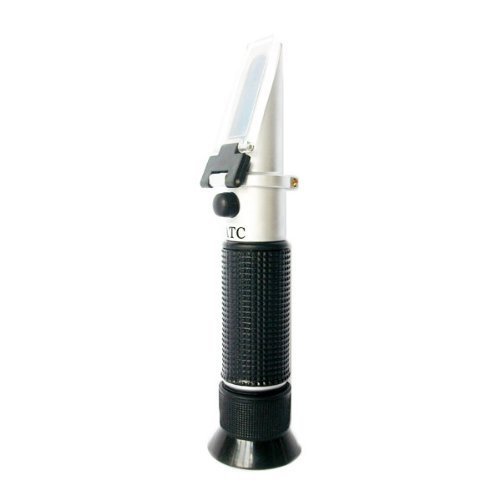Ten reasons the GAPS diet may not be for you
The GAPS (Gut And Psychology Syndrome) diet is increasingly popular as a way to heal the gut. It is a sub-set of the Nourishing Traditions way of eating, with more targeted goals of healing all sorts of gut-related ailments, from ASD to auto-immune disease, to skin problems such as eczema. Across the internet, various people have rejoiced in their healing success with the diet, taught others the diet and cooking methods, and promoted this way of eating as a near-panacea. But that’s not the whole story. For every success story, there are some number of failures, and although these are not discussed on the same forums and Facebook groups, there are a number of reasons that GAPS can do more harm than good. I can say this on good authority because during my 15 years of chronic illness I spent about two years following the rules of a GAPS diet with religious strictness. I did this because I thought it would make me well, but that was not the case. Instead, I got much worse, at a faster rate than when I had been eating a less health-conscious diet. Later, I learned more about the way body chemistry works and is definitively different person-to-person
Let’s take a look at why many people just can’t regain their health on this demanding and complex diet.
#1: The GAPS diet is highly acidic.
By “acidic”, I’m not meaning the much overused (and incorrect) idea that meats are “acid forming” and vegetables “alkalizing” based on the pH of the ash created when they are burned with fire. . Instead, I’m coming from the line of thought from Dr. Carey Reams, who taught that the form of calcium in a food is what determines its pH effect on the body. Calcium gluconate is neutral, calcium lactate is acidic, calcium hydroxide is alkaline, to name a few. If a body is trending too acidic, calcium lactate should not be used. Where do we find this calcium? It’s in kefir, yogurt, buttermilk, sour cream, etc. All the fermented dairy products, as well as all the fermented veggies, particularly if they were cultured with whey. So, if you are running too alkaline, this aspect might make you feel better. Otherwise, it’s detrimental to your mineralization.
#2. The GAPS diet is high in free glutamates.
I wish this didn’t matter, but for most people, it does. Excitotoxins are most famously known in the synthetic form of MSG, but naturally occurring forms of free glutamate are just as bad in excess. Bone broth, slow-cooked meats, certain nuts, aged cheeses, and a handful of vegetables are high in free glutamate. Normally, these “excitotoxins” do not cross the blood-brain barrier, but when inflammation from leaky gut (which the GAPS diet is supposed to treat) is present, the BBB is often not functioning at its best. In addition, exposure to cell phone (and WiFi, etc) radiation opens the blood-brain barrier and the protection is lost. In this day and age, it is always a possibility that the BBB is compromised and for individuals dealing with autism spectrum problems or behavioral problems, glutamates can be a culprit and should be reduced, not increased, in the diet.
#3 Not everyone can safely eat so much animal protein
If digestion is weak due to reduced liver function (even if undiagnosed and unsuspected), youth (young children do not have the digestive strength of adults), or poor mineralization (common in people suffering from gut dysbiosis), meat may never be fully digested in the digestive tract, and proteins that have not been fully disassembled into their component amino acids can end up in the bloodstream. These proteins get broken down into urea compounds which, when present in excess, act to thicken the blood and stress the heart. One remedy for this is supplementation with dolomite, a magnesium containing form of limestone, but this supplement (and all magnesium supplements) can be dangerous to a person with a tendency to low potassium, as magnesium chelates potassium and causes it to flush. Without first determining these details about an individual’s body chemistry, a high animal protein diet is not a wise choice.
#4 GAPS is labor intensive and expensive
Obviously, this is not a problem for everyone. Some people have a lot of resources in both time and money and/or are willing to make the necessary sacrifices to follow through with the diet. But for many people, these factors do have an impact on the decision to try or not try a new approach to diet and health.
#5 Cod Liver Oil is problematic for the chronically alkaline
While acidic-trending people cannot handle acidic foods like kefir and kombucha, those tending to be too alkaline should not take cod liver oil, vitamin D, vitamin A, bananas, or cheddar cheese, among other things. Especially in the case of something taken daily as a supplement, like CLO, it is important to know more about one’s body chemistry first. Excess alkalinity causes the digestive tract to slow down, stretching the colon, drying the stools too much during their slow passage, and leading to constipation and the reabsorption of toxins in the gut lining.
#6 GAPS does not emphasize the effects of toxic chemicals on the gutOne major concern about about GAPS is that it doesn’t seem to encourage the extreme care I believe to be warranted in the realm of organics. Nothing is more destructive to the microbiome and lining of the gut than glyphosate (RoundUp), which is ubiquitous in conventionally-grown food. Additionally, the inability to digest grains may, in many cases, be attributed entirely to this factor, as glyphosate becomes an integral part of the collagen used to build the gut lining, the lining no longer functions properly. Glyphosate does this because it is a mimic of glycine, an essential amino acid. My concern here is that grains may actually be essential to the human diet, but the digestive function has been lost due to modern environmental factors, making a no-grains diet risky when taking on a restorative dietary project in one’s life, especially with children.
#7 The GAPS diet can exacerbate chronically low sugars
When hypoglycemia is a problem, many people believe that relying more heavily on fats and proteins for energy in their diet is a good solution. However, this does not address the root cause and only helps in the short-term, if at all. The reason the sugars are not well-maintained has two related causes: The liver’s loss of the ability to monitor the blood sugar and send good instructions to the pancreas and the resulting over-production of insulin by the pancreas, which is not “well-informed”. The liver’s particular mineral deficiencies are usually contributing factors to this cycle of misery, and the pancreas also benefits from plenty of chlorophyll to help it become better regulated. Neither of these root causes are addressed by GAPS, so the diet can be extremely miserable to those with trouble maintaining sugar levels.
#8 GAPS, ironically, is not as easy to digest as advertised
In addition to the difficulties with digesting meats I mentioned in #3 above, nuts, which can make up a large part of a GAPS diet, are hard for many people to digest without extra stress to the colon. This is true even when they have been presoaked, particularly for small children or those with highly alkaline pHs.
#9 Nutrient density given mostly lip-service
Many foods in the GAPS diet are called nutrient-dense, mainly because they are high-fat and high in animal protein, but these are not necessarily nutrient-dense foods. Nutrient density is actually a measure of mineral content in food. Nutrient-dense beef comes from animals grazed on high-Brix pasture which gave them so much calcium the marrow channels in their femurs are pencil-thin, surrounded by a heavy wall of dense bone. Nutrient dense cabbage is a head that feels too heavy for its size and was grown with plenty of calcium, phosphate and trace minerals, as well as the active soil biology to ensure the availability of those minerals to the plant. Its Brix will be at least 8, but hopefully 10 or 12. Nutrient dense milk has a Brix of at least 12, reflecting its actual high calcium content.
#10 GAPS is focused on a small set of vitamins to the exclusion of minerals and the other necessary vitamins
Not all vitamins are good for all people at all times, so the one-size-fits-all approach GAPS brings to the issue of vitamins gives me reason for concern. All the differences in body chemistry I mention in the above points also affect the usefulness of particular vitamins to particular people, and many people have severe deficiencies which remain unaddressed by the GAPS diet, which can dramatically decrease their ability to heal.





Very interesting and informative. Definitely something to think about…I’ve been on intro, and now moved in to full GAPS, but I can’t stand broth and meat anymore! Considering what to do next…
I studied Biology and don’t understand why acidity or alkalinity would be an issue when it comes to foods. The cells of the body are only able to survive within a narrow pH range. If the body’s pH begins to deviate from this range, the negative feedback systems of homeostasis ensure that effectors are mobilised to swiftly return the body’s pH to a healthy level regardless of which foods were consumed.
Indeed, the pH of the blood must remain constant or you will die. However, the rest of the body’s fluids can, and do, vary widely in their pH. The reason this happens is for the very purpose of maintaining the blood inside the very narrow acceptable range needed for life. The main buffer for excess acidity is calcium, but there are others, mainly phosphorus, potassium, trace minerals and various bicarbonates. You can make bicarbonates and even certain calcium compounds, but if the elemental components and energy are not present, it becomes impossible. This is why teeth and bones are necessary as storehouses of minerals. But if you don’t want your teeth and bones to be drawn on like a bank account, it is very important to be consuming the minerals in the compounds most useful to the body.
So, say you measure your urine pH at 5.3. This is very low (acidic). From this information, we can tell that there is not adequate calcium for buffering acid, because the kidneys are now being instructed to flush out acids in the urine to help maintain homeostasis. If the saliva pH is acidic (for this purpose under 6.2), we know that the liver’s output is too acidic and this also indicates a need for alkalinizing calcium compounds (though certain compounds, such as calcium lactate, have an acidifying effect), bicarbonates, etc.
The problem is not that the body does not have systems in place to manage the problem, because it certainly does. The problem is that those systems are under a great deal of stress when under-supplied with raw materials for their jobs.
Hi Nicole,
That’s very interesting. Thanks so much for your explanation!
Love your blog. I’m a GAPS practitioner but always use it with RBTI. I do find that autistic kids are mostly alkaline anyway but still follow Reams protocol by “going by the numbers”. I find RBTI helps them much more than GAPS anyway.
Where abouts are you in the world.
Hi Nicole,
I come across your very insightful comment and posts about gaps diet which I been on wity my 5 year old son for the past 5 months and I’m seeing that you are a health researcher and nutritionist that can shed some light to some of the issues I’m facing along the way.
I did multiple tests and needs more understanding as to how his body is functioning and if gaps is overall not being detrimental, helpful or twicked to his metabolic needs.
I’m very committed and devoted to helping him now that brain elasticity is still in our favor. Please please get back to me to see if that’s something you could help me understand from a logical scientific standpoint.
My email is below and will provide anything that may help you work with me. Thanks so much and God bless!
I’m glad this post has been helpful. The good news is that instead of expensive testing you have to order through a lab, there are simple methods for testing yourself (and kids) at home, revealing many different deficiencies and needs. I’ll email you to chat more about this!
Great article Nicole. We were recently told to do the Gaps diet to help heal gut issues You are the best sister!